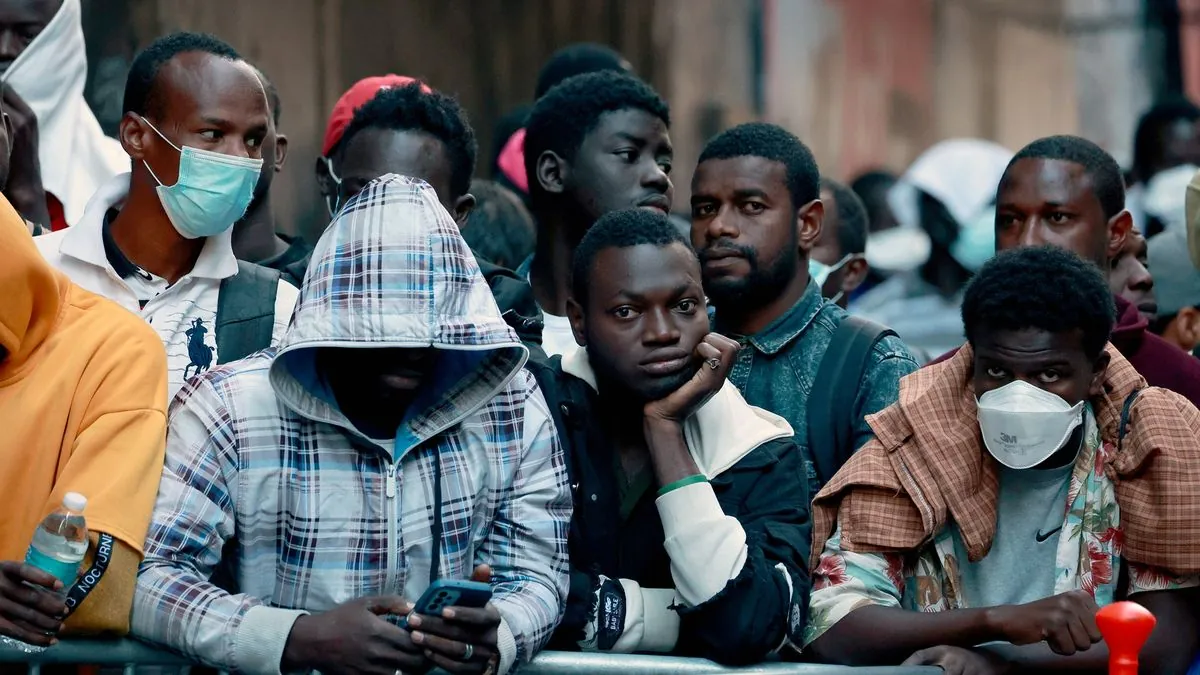Regina Porter's COVID-19 Novel Explores Race and Class in America
Regina Porter's "The Rich People Have Gone Away" offers a unique perspective on the COVID-19 pandemic, weaving together diverse stories that illuminate social inequalities and human experiences during unprecedented times.

Regina Porter's novel "The Rich People Have Gone Away" presents a compelling narrative set against the backdrop of the COVID-19 pandemic, offering readers a unique perspective on this global crisis. Released four years after the virus first reached American shores, the book serves as a poignant reminder of the early days of the pandemic, when uncertainty and fear gripped the nation.
Porter's work stands out for its ability to use the pandemic as a prism through which to examine the complexities of American society. The novel's title itself alludes to the exodus of wealthy individuals from urban centers during the initial outbreak, highlighting the stark differences in how various socioeconomic groups experienced the crisis.
The story primarily follows Theo Harper, an interior decorator living in Park Slope, Brooklyn, and his pregnant wife Darla, a professional bassoon player. Their experiences serve as a springboard for exploring broader themes of race, class, and identity in America.

One of the most striking aspects of Porter's writing is her ability to capture the zeitgeist of the early pandemic. She vividly describes scenes that many readers will find familiar: the eerie silence of city streets, the anxiety of sharing an elevator, and the frantic search for essential items like toilet paper. These details serve as a powerful reminder of the collective trauma experienced during this time.
"My great-great-grandfather was black."
This quote, uttered by Theo during a pivotal argument with Darla in the Catskill Mountains, encapsulates the novel's exploration of racial identity and its complexities in American society. The ensuing conflict between the couple serves as a microcosm for larger discussions about race and prejudice in the United States.
Porter's narrative style is notably unconventional, with the story frequently branching off to follow various characters tangentially connected to the main plot. This approach allows the author to present a more comprehensive view of how the pandemic affected different segments of society, from a Black high school student temporarily living in Theo's building to a restaurant owner struggling to keep her business afloat.
The novel's structure mirrors the fractal nature of human experiences during the pandemic, with each character's story contributing to a larger, more complex picture. This technique effectively illustrates how the virus, while indiscriminate in its spread, had vastly different impacts on individuals based on their race, class, and circumstances.
Porter's work serves as a powerful reminder of the inequalities exposed and exacerbated by the pandemic. By interweaving stories of characters from diverse backgrounds, she highlights how factors such as race and socioeconomic status influenced individuals' ability to navigate the crisis.
"The Rich People Have Gone Away" is more than just a COVID-19 novel; it's a nuanced exploration of American society during an unprecedented time. Porter's skillful storytelling and keen observations make this book a valuable addition to the growing body of literature addressing the pandemic and its far-reaching consequences.


































